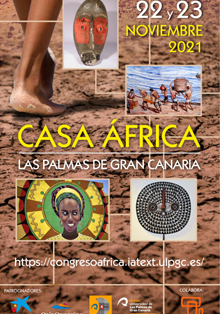Miguel Ángel Medina
Deputy Director of the Antoni Montserrat Chair of World Studies / Universitat Abat Oliba CEU
When Algerian gas stopped reaching our shores on 1 November, in the words of its president ‘because of Morocco’s hostile practices towards Algeria’, analysts began to speculate on how Spain could compensate for this loss. Rivers of ink were written on the energy, political and economic consequences of the Algiers government’s decision not to renew the agreement that allows many of us, through Morocco, to take hot showers every morning. Spanish multinationals were not far behind in their news flashes, let alone the mass media, oscillating between tacit alarmism and a disheartening acceptance of reality.
The trees often prevent us from seeing the forest, and in this case we should not only look at the tip of the iceberg, but also analyse the geopolitical background to this episode. In this regard, we must sketch out some outlines of why we have reached this situation and what solution the future may hold for us.
Let us remember that historically Morocco and Algeria are like water and oil, so don’t put them together! While the two countries have had more than one tug-of-war since independence, the height of this animosity came in August this year, when Algiers and Rabat decided to break off diplomatic relations, followed by the closure of Algerian airspace to all Moroccan flights in September. We should not overlook the history of tensions between the two countries, starting with the dispute over Maghreb hegemony, the conflict over the Polisario Front and the management of the Western Sahara conflict, the delimitation of maritime spaces on the coasts of Northwest Africa, the negotiation of the EU-Morocco fisheries agreement, and finally relations with the United States. We cannot understand Algiers’ decision to turn off the tap of Algerian gas to Spain via the Maghreb-Europe gas pipeline without paying attention to these and many other geopolitical issues.
And the recent rulings of September 2021 (which have gone unnoticed among the hundreds of news items we are forced to consume on a daily basis) of the EU Court of Justice invalidating the fisheries agreement with Morocco deserve special attention. Related to the issue at hand? That they largely agree with Algeria, since the agreements with Morocco included Western Sahara, with which Brussels (and this means Madrid and Paris, let us not forget) tacitly accepted Moroccan sovereignty over the Saharawi territory. Rabat has not been able to digest well this cold water that its, until a few months ago, partners in Brussels and Washington probably did not foresee. The EU, probably indirectly, has given the Algerian regime the backing it needed to feel strong in a very unstable regional and geopolitical context. It is in this context that Algiers has decided to look Rabat and Madrid in the eye and has opted to throw a little more meat on the grill. And states, like people, have cellular memories and remember episodes that have marked them in the past – and surely Algiers has not forgotten the military skirmishes with Morocco, the migratory crisis and the almost 8,000 Moroccans who have entered Ceuta in recent months, the tensions between the two countries and Madrid over the stay of the Polisario Front leader in our country, or the Trump administration’s nod to Alawi sovereignty over Western Sahara.
Surely the way out of this situation involves touching several keys, since if we focus on the strictly energy issue we will only continue to look at the tip of the iceberg, without analysing the huge ice floe that lies beneath. What possible solutions do we have in our deck?
Being pragmatically short-sighted, and given that it is mid-November, it seems essential for Algiers to reinforce the export capacity of the Medgaz gas pipeline. And to explain to Morocco that it must give in on some issues with its Maghreb neighbour if it wants to recover the rights of passage and the source of electricity generation that the Maghreb-Europe gas pipeline represents. It is not so clear that the closure of this energy corridor will have an ‘insignificant’ impact on Morocco, let alone Spain. Looking beyond this measure, in the purely energy field, seems daring. If we broaden the temporal focus, certain confidence-building measures between the different actors involved should be on the agenda. High-level meetings are probably of little use in this context, and it would be appropriate to strengthen links between the civil societies of both countries, strengthen the scant bilateral trade that exists in the Maghreb at the horizontal level, and give Brussels a nudge to get its delegations in Rabat and Algiers to explain the situation properly. And, of course, Madrid should dust off certain stalled Maghrebi dossiers.
© All rights reserved






